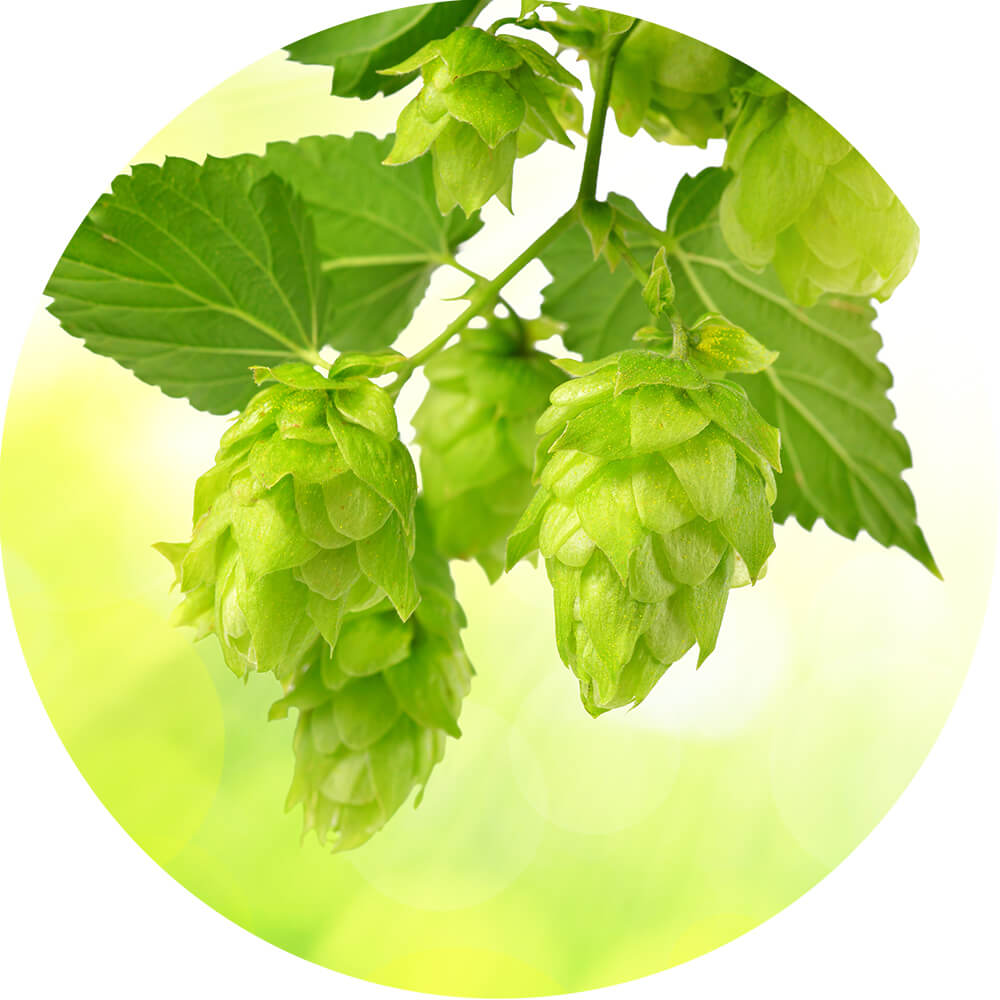Hops
(Humulus lupulus)
Hops were given their scientific name Humulus lupulus because of ancient Romans’ wrong belief that this perennial climber tends to strangle other surrounding plants, just as a wolf (lupus) does to its prey.
Even though they were used by American Indians and Arabs for centuries for medicinal purposes, hops were first used in Europe as a favourite ingredient for beer-brewing – hops give beer a special bitter taste. Nowadays we look at beer as a refreshing drink to be enjoyed, but in the past it used to be drunk out of bare necessity. At the time when water was frequently unclean and when diseases would decimate entire villages and towns because of contaminated water sources, only those who drank beer instead of water survived, thanks to anti-microbial properties of hops and alcohol. But beer used to be different from what it is today – it was much milder and it was made without yeast. Hildegard of Bingen, an abbess and a famous herbalist from the 12th century, wrote in one of her books that, with their bitterness, hops prevent beer from going bad and extend its lifespan. At the beginning of the 16th century a law on the quality of beer was adopted in Germany which prescribed that beer could be made only with barley malt, hops and water. At that time, yeast was not used for brewing and the chemical processes involved therein were not known.

